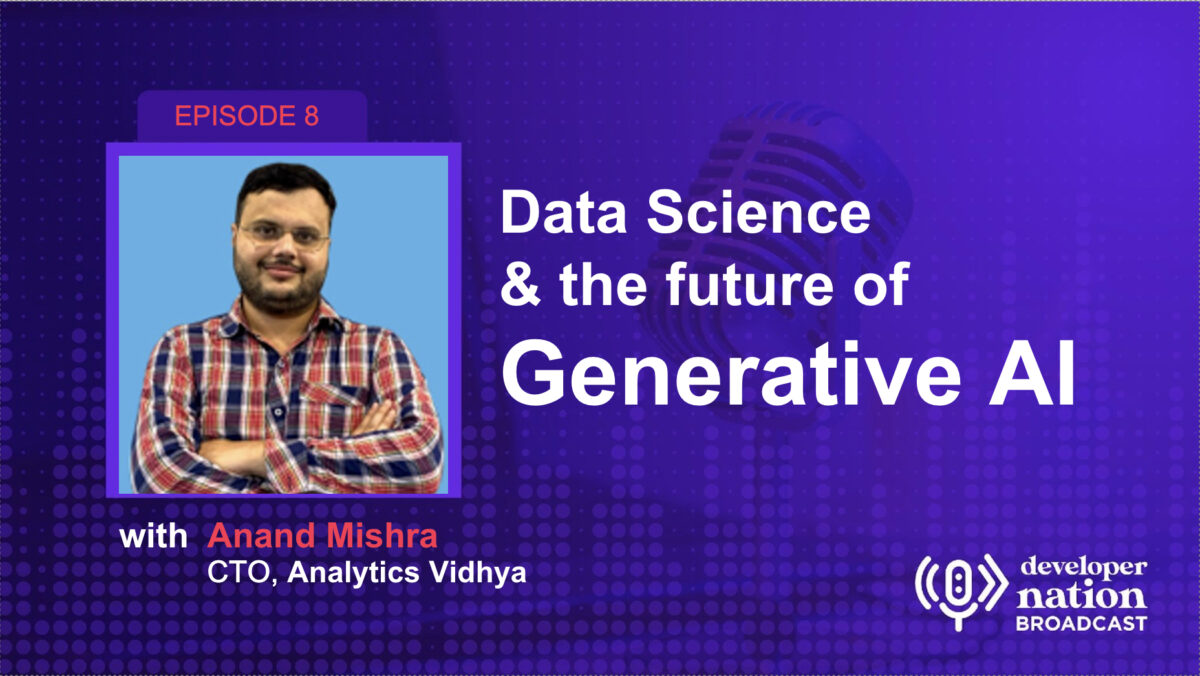Our mission at Developer Nation is to “Enable developers and tech creators worldwide to shape the future of Technology by leveraging the power of Research and Community”. In line with this, we’re diving into the exciting world of Generative AI with insights from our latest “State of the Developer Nation, 29th Edition” report: The Developers Behind Generative AI Applications. This report, based on a global survey of over 10,000 developers, sheds light on who is building with Generative AI and why.
Generative AI is rapidly becoming a cornerstone of the modern software ecosystem, redefining what our applications can do and introducing new considerations for innovation. The good news? Developers are at the forefront of this transformation.
{{ advertisement }}
The Rise of Generative AI in Applications
Our research reveals that 20% of developers worldwide are already incorporating generative AI functionality into their applications. This includes capabilities like generating text, images, audio, video, and even code. While this is a significant number, it also means there’s vast potential for more developers to engage with this transformative technology.
So, who are these pioneers and what drives their adoption of Generative AI?
Professional Status Matters
- Professionals Lead the Way: Professional developers are approximately twice as likely as their counterparts to integrate generative AI into their applications (22% vs. 11%). This difference highlights the impact of workplace context. Professionals often benefit from better resources, technical support, and access to advanced infrastructure, enabling them to incorporate complex technologies more effectively. They are also driven by real-world business needs and the pressure to deliver feature-rich applications.
- Students and Hobbyists Face Hurdles: In contrast, hobbyists and students may have lower adoption rates due to limited access to training, fewer financial resources, or less exposure to cutting-edge tools.
Experience Plays a Role
- Mid-Career Developers at the Forefront: Developers with 6-10 years of experience are the most active in adding generative AI to their applications (26%), closely followed by those with 3-5 years of experience (23%). These mid-career developers are uniquely positioned, often trusted with innovative features.
- Early and Senior Career Trends: Beginners (less than one year of experience) are the least likely to build with generative AI (11%), often focusing on core skill development in simpler projects. Interestingly, there’s a slight drop in adoption among senior developers (over 10 years of experience) at 17%. This could be due to established workflows, where they might delegate innovative tasks or leverage their deep expertise in other critical areas of a project.
Regional and Company Size Dynamics
- North America Leads Globally: North America stands out with the highest integration rate of generative AI (27%), reflecting its concentrated tech industry, significant venture capital, and sophisticated technology ecosystems. Regions like Eastern Europe (11%) and South America (12%) show lower adoption.
- Midsize Companies Are Agile Innovators: Among professional developers, midsize companies (101-1,000 employees) lead in generative AI adoption at 29%. These companies strike a balance, possessing sufficient resources and expertise while remaining agile enough for rapid innovation. Freelancers and very small companies (2-20 employees) show lower rates (13% and 16% respectively) due to resource and financial constraints. Even large enterprises (>1,000 employees) have a slightly lower adoption rate (24%) compared to midsize firms, often navigating complex ecosystems, legacy systems, and regulatory considerations.
Your Role in the Generative AI Revolution
The insights from this report reinforce that shaping the future of technology is a collaborative effort. Whether you’re a student experimenting with your first AI model, a mid-career professional integrating AI into enterprise solutions, or a seasoned expert guiding strategic decisions, your engagement is vital.
By understanding these trends, we can better equip ourselves and our community to leverage Generative AI, drive innovation, and continue to build the future of technology.
What are your experiences with Generative AI? Are you building with it? What challenges or opportunities have you encountered? Share your thoughts in the comments below!


















